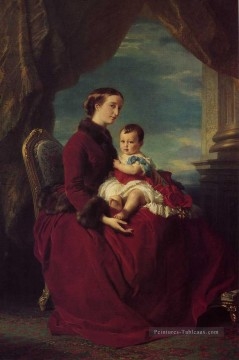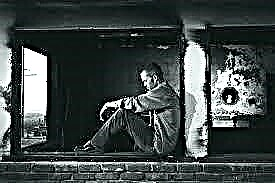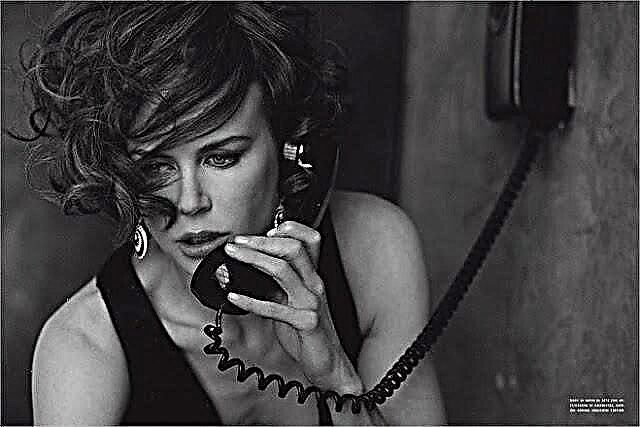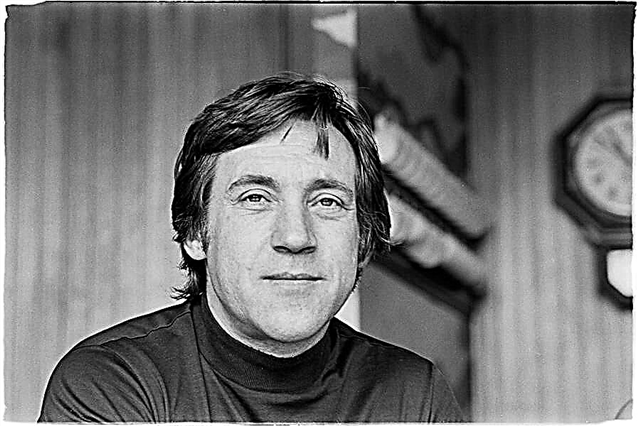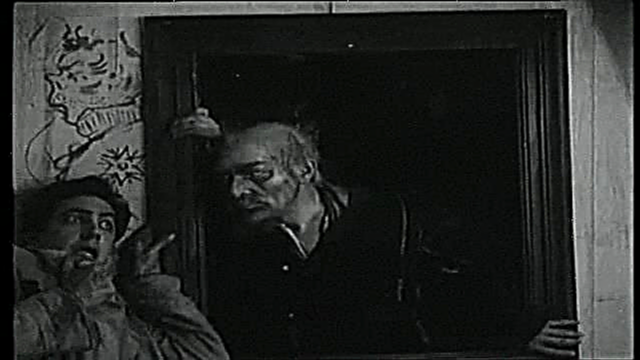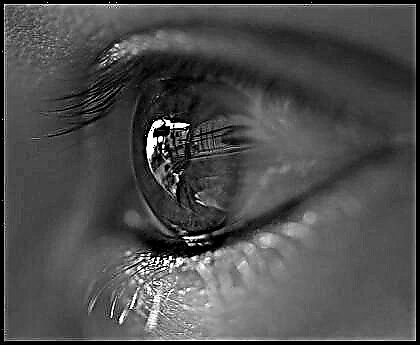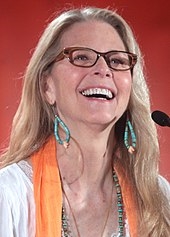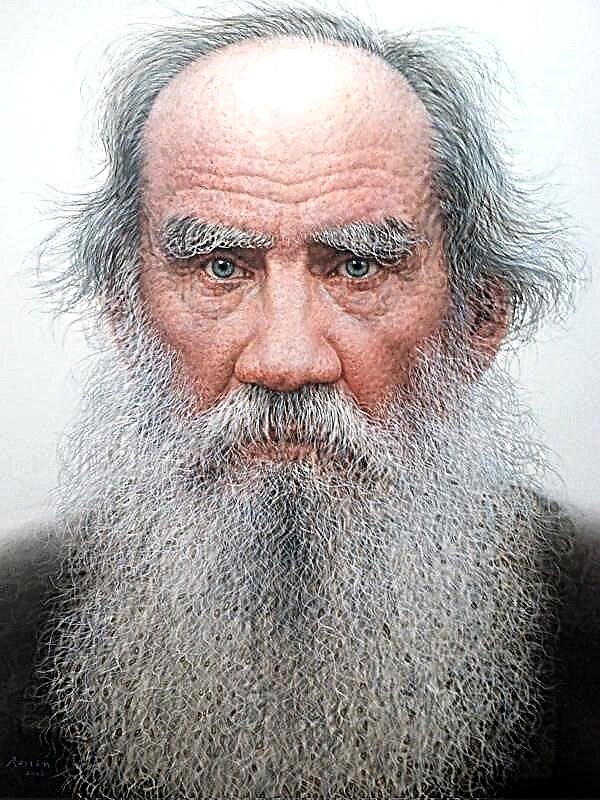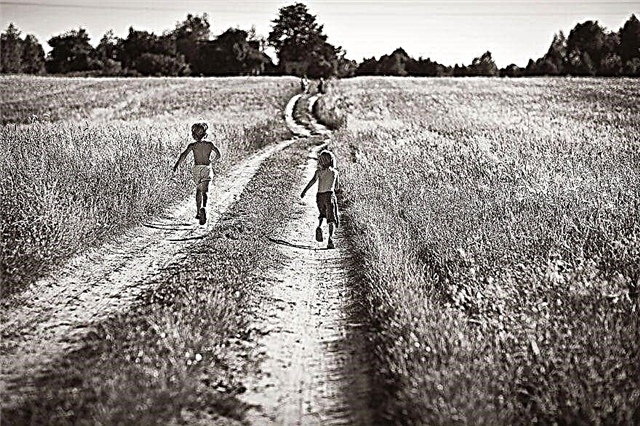America, 1889 Eighteen-year-old Carolina Mieber, or, as she was affectionately called home, sister Kerry, leaves Columbia City's hometown and takes the train to Chicago, where her married older sister lives. Kerry’s wallet has only four dollars and her sister’s address, but she is inspired by the hope of a new happy life in a big and beautiful city.
At first, however, she was expecting sheer disappointment. A sister is burdened with family and household, her husband works as a carriage cleaner at a slaughterhouse and earns quite a bit, and therefore every extra waste makes serious gaps in their meager budget. Kerry goes in search of work, but she does not know how to do anything, and the best that she manages to find is the place of a worker in a shoe factory. Monotonous, poorly paid work greatly weighs on the girl, but, ill, she loses this income. Not wanting to be a burden for her sister and her husband, she is about to return home, but then she accidentally meets the young salesman Charles Drouet, whom she met on the train on the way to Chicago.
Drouet is sincerely ready to help Kerry, persuades him to borrow money from him, then rents an apartment for her. Kerry accepts Druet's courtship, although she does not have any serious feelings for him. However, she is ready to marry him, but if she starts a conversation about this, Drouet embarks on various excuses, assuring that he will certainly marry her, but first must settle the formalities with some kind of inheritance.
It was Drouet who introduced Kerry to George Gerstwood, who runs the highly prestigious Moy and Fitzgerald bar. At the price of great diligence and perseverance, Gerstwood managed to rise from the bartender in the third-rate saloon to the manager of the bar, where the most respectable audience gathered, for many years of work. He has his own house and a solid bank account, but there is no trace of family relations at all. Elegant, possessing impeccable manners, Gerstwood makes a strong impression on Kerry, and Gerstwood, in turn, shows interest in a pretty young provincial girl, especially since his relationship with his own wife is noticeably worsening.
At first, Gerstwood and Kerry meet in the company of Drouet, then secretly from him. Gerstwood offers Kerry to move to another place so that no one interferes with their relationship, but Kerry is ready to do this only if he marries her. Meanwhile, Drouet recommends her for the lead role in an amateur performance. The lack of stage experience, of course, makes itself felt, however, the debut is quite successful.
Meanwhile, both Drouet and the spouse of Gerstwood are growing suspicious. The position of Gerstwood is complicated by the fact that he wrote down all his property in the name of his wife, and now she intends to leave him penniless on the most legitimate grounds. Caught in an extremely difficult situation, Gerstwood decides on a desperate act.
Taking advantage of the fact that the owners completely trust him, he steals ten thousand dollars from the box office and takes Kerry away.
First, he informs her that a disaster happened to Drouet and that it was necessary to go to his hospital, and only on the train did he explain to Kerry the meaning of his act. He assures her that he has finally broken up with his wife that he will soon get a divorce and that if Kerry agrees to leave with him, he will never think about leaving her. True, he is silent about having appropriated other people's money.
However, his deception quickly pops up, and in Montreal, where Gerstwood and Kerry got married as Mr. and Mrs. Wheeler, he is already waiting for a private detective hired by the owners of the bar. Having returned most of the stolen goods, Gerstwood is given the opportunity to freely return to the United States. He and Kerry settle in New York.
There he manages to invest the remaining money in a bar, and for some time his life goes back to normal. Kerry manages to make friends with the neighbor Mrs. Vance, visits theaters and restaurants with her and her husband, meets with the inventor Bob Ems, Mrs. Vance's cousin. Ems was interested in Kerry, but he was not a womanizer, he respects the marriage ties, and the acquaintance does not have development. Then the young engineer returned to his native state of Indiana, but he made a deep impression on Kerry: “Now Kerry has an ideal. With him she compared all other men, especially those who were close to her. "
So three years pass. Then clouds gather again over Herstwood. The house in which his bar was located is transferred to another owner, reconstruction is planned, and his partner is breaking the contract with him. Gerstwood feverishly begins to look for work, but his years are not the same, he has not acquired any useful skills, and he has to listen to refusals again and again. From time to time he meets old acquaintances at the “My and Fitzgerald” bar, but he cannot take advantage of old connections. He and Kerry change their apartment, save on everything, but there is less and less money left. To improve matters, Gerstwood tries to use his former ability to play poker, but, as is usually the case in such situations, he loses the latter.
Realizing that hopes for Gerstwood are now illusory, Kerry attempts to find work. Remembering her success in an amateur performance, she tries to get on the stage, and in the end, luck smiles at her: she becomes an operetta corps de ballet artist. Gradually, she is knocked out of the statistics as a soloist.
Meanwhile, Gerstwood, exhausted by the constant refusals to find work, decides to take a desperate step. When the Brooklyn Trams go on strike, Gerstwood is hired by a carriage driver. But strikebreaker bread is very bitter. Gerstwood has to listen to insults, threats, he parses the rubble on the rails. Then they shoot him. The wound is trifling, but Gerstwood’s patience comes to an end. And without completing the shift, he throws the tram and somehow gets to the house.
Having received another promotion, Kerry leaves from Gerstwood. In parting, she leaves him twenty dollars and a note stating that she has neither the strength nor the desire to work for two.
Now they seem to be moving in opposite directions. Kerry becomes the favorite of the public, reviewers are supportive of her, wealthy fans are pursuing her company, the administration of a luxury hotel invites a new celebrity to stay with them for a nominal fee. Gerstwood is in poverty, sleeps in shelters, stands in lines for free soup and bread. Once, the hotel manager, taking pity on him, gives him a place - he does black work, gets pennies, but I'm glad about that too. However, the body can not stand it, having contracted pneumonia and lying down in the hospital, Gerstwood again joins the army of the New York homeless people, satisfied if they manage to get a few cents for the night. Gerstwood does not hesitate to beg and once begs for alms under the lights of an advertisement reporting the performance with the participation of his ex-wife.
Kerry again meets with Drouet, who is not averse to renewing their relationship, but for Kerry he is already uninteresting. Comes to New York Ems. Having achieved success in his West, he intends to open a laboratory in New York. After watching another operetta with Kerry, he inspires her that it’s time to do something more serious, you need to try yourself in the drama, because, in his opinion, she is capable of something more than the template roles that she gets.
Kerry agrees with his opinion, but makes no attempt to change his fate. She generally falls into longing and apathy. Drouet left her life, apparently, forever. Gerstwood did not, although Kerry was unaware of this. Unable to withstand the blows of fate, he committed suicide by gas poisoning in a New York shelter. However, “even if Gerstwood had returned in his former glory and glory, he would not have deceived Kerry anyway. She learned that both his world and her current situation do not give happiness. ” Outwardly, her affairs are going well, she does not need anything, but again and again her victories seem ghostly to her, and real life inexplicably eludes.

